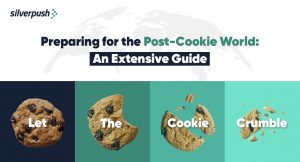Contextual Intelligence: Everything You Need to Know and Why It Matters | 18 Jul, 2022

Contextual intelligence is not an unheard term for the advertising industry, rather marketers have been knowing it for many years. What is happening now is that this form of advertising is undergoing a resurgence.
As users’ privacy concerns and brand safety woes continue to grow, marketers are seeking an ad targeting solution that does not make use of user data, provides impressive results, and at the same time, does not damage brand reputation. Such a solution is offered by contextual advertising, which involves the use of contextual intelligence for placing ads next to contextually relevant content only, thereby making ads interesting to consumers.
How Contextual Targeting works?
In the realm of digital advertising, contextual advertising, also known as contextual ad targeting, makes use of contextual intelligence to deliver ads based on the content being viewed by users. It does not take into consideration who is viewing the content; its focus is just on the content itself. By comprehending what’s on a web page, contextual targeting communicates a brand’s message that is contextually relevant, and therefore, has a greater chance of driving action.
The major difference between contextual advertising and behavioral advertising is that context-based advertising use a webpage’s content instead of data provided by third-party cookies to serve ads. Third-party cookies track personal data of users, thus leading to data privacy issues.
An example that can be cited here is of an airline company that wants to target people planning vacation. In order to reach the right people in right context, it will display ads on webpages having content about destinations for vacation, resorts, hotels, beaches, etc. This contextual advertising campaign will enable the airline to reach relevant audience. In order to ensure brand safety and brand suitability, the campaign will avoid ad placement against content related to natural calamities such as hurricane, storm, tornado, etc.
Advantages of Contextual Intelligence for Advertisers
Contextual intelligence offers many advantages to digital advertisers as discussed below:
Compliance with data privacy regulations
Contextual intelligence enables marketers to deliver ads without using personal data of users. Thus, contextual targeting is fully compliant with data privacy laws such as the GDPR and the and California Consumer Privacy Act (CCPA).
Reach maximum audience
Advertising campaigns powered by AI-based contextual advertising technology are able to reach maximum audience. This is because artificial intelligence and machine learning algorithms allow precise targeting of maximum number of contextually relevant web pages.
Increase consumer engagement
As contextual intelligence enables delivering ads that align with the content that people are engaging with, it leads to increased engagement of consumers with the ads. The increased engagement results in higher chance of people clicking on the ad and reaching the product web page on the brand’s website. This ultimately leads to increased sales.
Ensure a brand safe and suitable environment
Contextual intelligence helps brands in placing their ads in a brand unsafe and unsuitable environment. It allows brands to take into consideration the socio-cultural trends, so that their messages do not appear against inappropriate content. In the world of programmatic advertising, brands do not have control over where their ads will be placed. By adopting AI-powered contextual advertising solution, brands can prevent negative associations.

BLOGS
Super Bowl Advertising: A Month-Long, Multi-Screen Event for Brands
For Americans, there are two events that they hyped for a whole year - Football season, and waiting for football season. Football remains highly popular among Americans, with searches for "NFL Draft" and viewership numbers showing an unwavering interest in the sport. According to Google Search data, football is more ...

BLOGS
Advertising in the Age of Climate Change: The Adoption of Carbon Emission Metrics
The urgency of the climate crisis is increasing, and the media industry is no exception. While some professionals are working to reduce their direct operational emissions, there is an urgent need for common standards to be set for indirect emissions that come from digital advertising. The digital advertising industry is becoming ...

BLOGS
Complete Guide to Reaching Audience with Cookieless Advertising
What’s your alternative game plan for effective cookieless advertising? Haven't thought about it yet? The time is now! Introduction The complete year of 2022 was dedicated to cookies! Panic is setting in amongst marketers owing to mounting privacy laws and the ban on cookies, causing them to re-evaluate their strategies.







